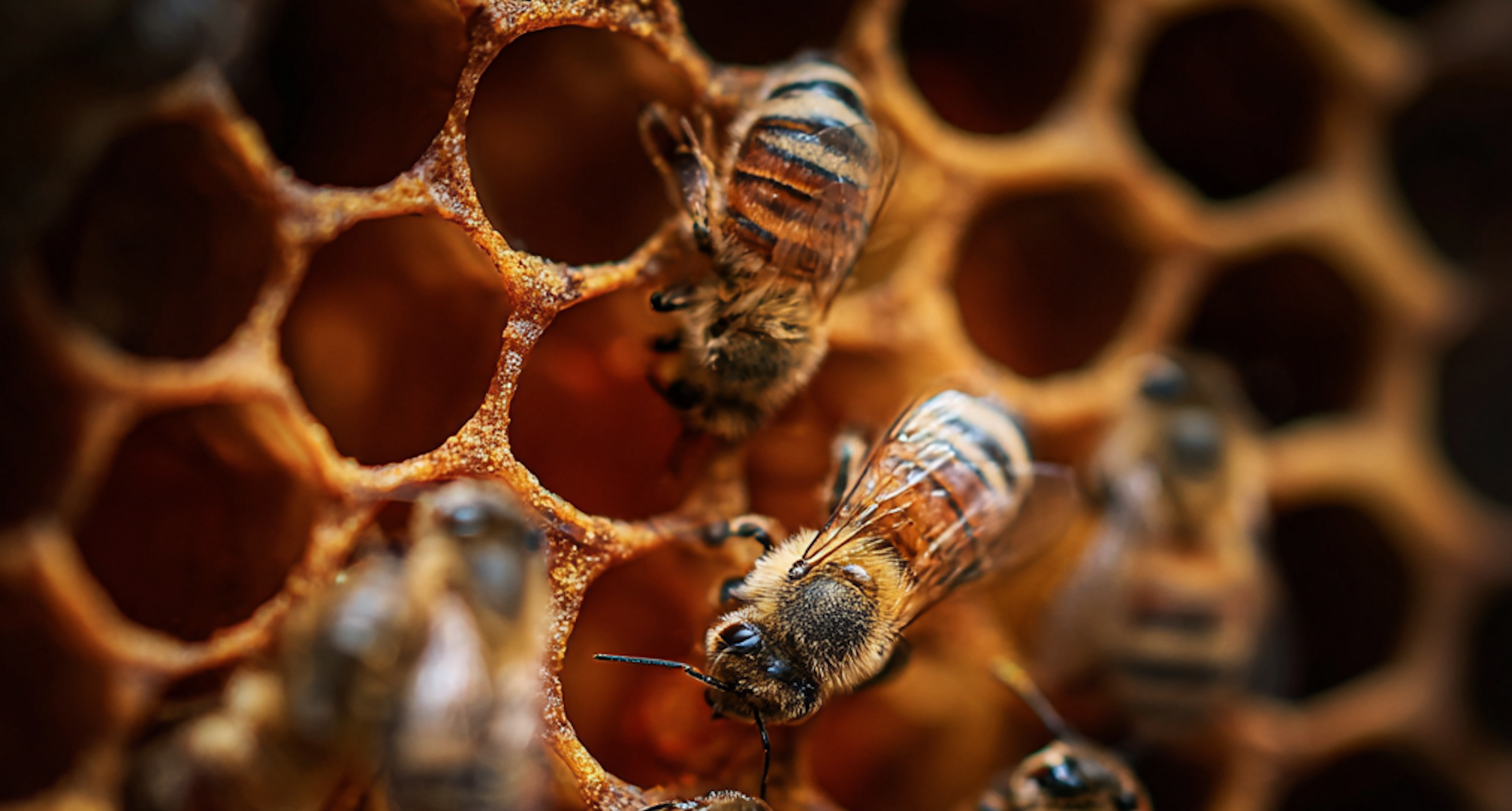Bees are a regular presence during the summer months, especially if you’re someone who spends a lot of time outdoors. While many people fear wasps and hornets due to their more aggressive nature and ability to sting and swarm, bees are generally more docile and less threatening to humans.
Most people hardly bat an eye when a chubby bumble bee buzzes by, and their presence is usually a sign that summer has officially arrived.
However, a large bee presence on your property can become a nuisance, especially if you start seeing ground bees, or it can affect your quality of life.
If you’re currently dealing with a bee population on your Allentown property, here is everything you need to know to get rid of these important pollinators without killing them.

Laws and Regulations on Bee Removal in Pennsylvania
The Pennsylvania Bee Law is a law that was enacted in 1921 to protect honeybees from diseases that can cause economic harm to the beekeeping industry.
This law requires all apiaries in the state to be registered and regulates the movement of bees and queens to prevent disease outbreaks.
While the law does not specifically address bee removal, the state may take certain actions to remove bees or relocate colonies in the event of a disease outbreak.
Understanding the Importance of Bees
Bees are some of our most important pollinators, as a significant portion of the world’s food supply depends on them. Crops like berries, apples, and even coffee all rely on bee pollination to thrive, making bees crucial to our ecosystem.
In addition to this, bees also produce honey, which is a valuable resource and can even be used for medicinal purposes.
Unfortunately, bee populations have been declining at an alarming rate due to a variety of factors, including habitat loss, pesticide use, disease, and climate change. This decline poses a serious threat not just to the bees themselves, but also to global food security and biodiversity.
Without sufficient pollination, many crops would see reduced yields, leading to higher food prices and fewer nutritious food options.
Common Types of Bees Found in Allentown
- Honey Bees: Known for producing honey and living in large, highly organized colonies. They are critical pollinators for many crops and flowers.
- Bumble Bees: Larger, fuzzy bees that are excellent pollinators and often nest in the ground or hidden cavities.
- Carpenter Bees: Often mistaken for bumble bees, these solitary bees burrow into wood to create nests.
- Mason Bees: Solitary bees that nest in holes or cracks and are highly efficient at pollinating fruits and vegetables.
Note: While wasps and hornets may look similar and belong to the same order (Hymenoptera), they are not bees and behave quite differently.
Why Bees Might Be Attracted to Your Property
The main reason bees may be attracted to your property is for food and shelter. If you have a lot of flowers or flowering plants on your property, you are more likely to encounter bees, as they rely on these flowers for nectar and pollen.
Bees are also attracted to sugar and sweet drinks, so they are more likely to linger around if you have opened food containers or drinks outside.
Identifying the Location and Type of Bee Activity
When it comes to trying to identify the location and type of bee activity on your property, try to keep track of where the bees are coming from or traveling to.
If you notice bees gathering around a specific spot, such as a corner underneath your deck or a hole in your home’s exterior, there is a good chance that it is where the colony is located.
5 Natural and Non-Lethal Bee Removal Methods
When it comes to removing bees from your property, it is always best to let a pest control professional handle the job. However, there are several natural and non-lethal methods to remove bees from your property, including:
- Planting bee-friendly flowers to entice bees to move further away from your home
- Using certain essential oils that are known to deter bees
- Burning citronella candles, which bees dislike the smell of
- Burning pine needles, sage, or lavender near the beehive to deter them
- Contact a local beekeeper for advice
When to Call Pest Control for Bee Removal
If there are bees on your property that are becoming a nuisance or posing a threat to your safety, you should contact a pest control professional for advice on how to proceed.
This is especially important if someone in your home has a bee sting allergy, as the presence of these pests can be dangerous for that person.
FAQs
Why shouldn’t I kill bees on my property?
Bees are some of our most important pollinators, and killing them would mean that roughly 80% of the world’s food-producing plant population would cease to exist.
If there are bees on your property that are bothering you, your best bet is to contact a trusted pest control professional for advice on what to do next.
Are bees protected in Pennsylvania?
The Pennsylvania Bee Law, which was established in 1921, was enacted to protect honeybees from diseases that can cause economic harm to the beekeeping industry.
The Bee Law requires all apiaries in the state to be registered and regulates the movement of bees to prevent disease outbreaks.
How can I tell the difference between bees, wasps, and hornets?
Bees, wasps, and hornets are commonly mistaken for one another, but there are several key differences. Bees are typically smaller and more docile than wasps and hornets, while wasps and hornets tend to be slightly larger and can sting and swarm when they feel threatened.
Can I remove a bee colony myself, or should I call a professional?
When it comes to removing a bee colony from your property, it is always wise to contact a pest control professional to handle it.
Attempting to remove a bee colony on your own can be dangerous and put you at risk of being stung, so always wait until an experienced pest control expert can visit your home and get rid of the colony for you.



























